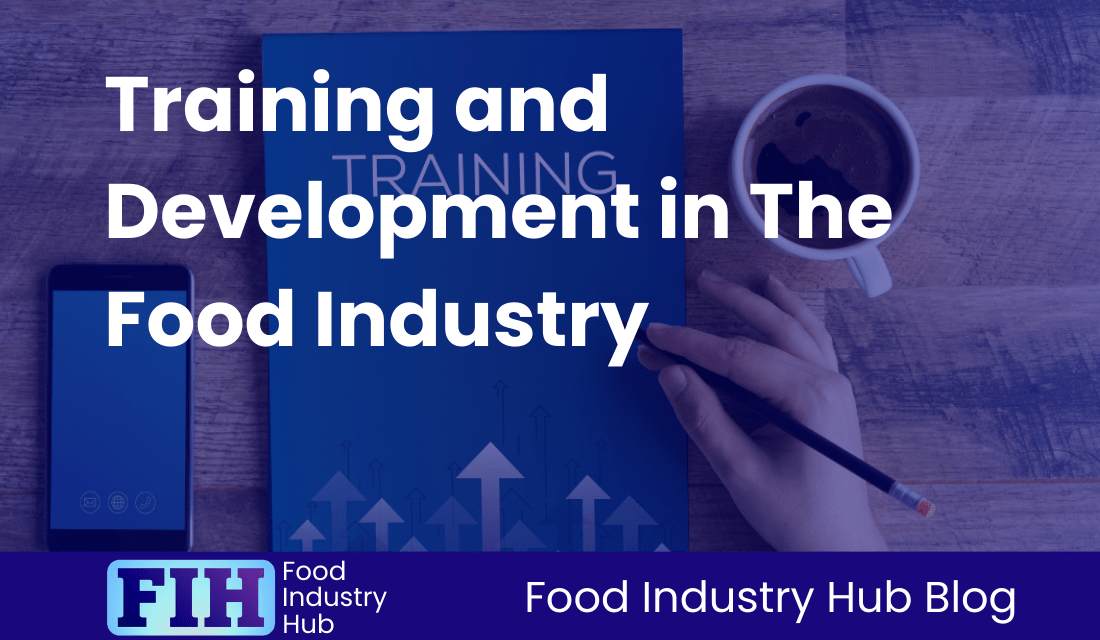Introduction
As a group of professionals, people in the food industry tend to be as passionate about building their professional expertise as they are about the profession itself.
Every time opportunities for professional development are made available, people are enthusiastic about engaging. With that in mind, this post brings together some free training resources that have been made available by global authorities. This is to make it easy for professionals in the food manufacturing industry to find and make use of these resources. We’ll also offer a little advice over professional development approaches.
As we dive into the topic, you may also like to check out The Food Industry Hub Signposting Service, which presents a broader collection of food industry resources than are included in the scope of this post.
You will also be interested to know that we offer software for food manufacturers – with management systems specially tailored to the food manufacturing industry.
The following is a selection of resources chosen for their value as training resources.
Selection:
For the sake of transparency, we have chosen to preferentially signpost to providers of free training materials. There are many training providers accessible to food manufacturers and food industry professionals – but we do not want to introduce a conflict by promoting any particular provider(s) over the alternatives available.
In the event that we were to introduce affiliate links to commercial providers at any point, we would be transparent about that.

Training and Professional Development
There are many training and professional development resources available across the internet, and we encourage all professionals to search every now and again, to see if any new professional development tools have become available.
The resources included here are directly applicable to the field of food manufacturing – but as a point of interest, we’d also like to promote learning across different disciplines.
If you want to promote behaviour and culture change, you might really benefit by learning about things like behavioural economics and game theory, for example. Neither of these subjects have anything to do with food manufacturing directly – but there are transferable concepts that you can use practically and managerially.
It can also be good to consider pursuing training for professional skills rather than specific competencies. It doesn’t matter what function you specialise in – so this applies equally to NPD technologists and production managers: consider taking a course in lead generation and sales. You can develop better persuasion and networking skills, and that’s good for your career no-matter what field you’re in. These things are really practical, too – so you actually learn how to engage with people and initiate conversations at networking events and things. The social skills that contribute to career advancement are learned – so you can intentionally develop them by seeking out training opportunities.

Sign-up for the Food Industry Hub Mail Service
We regularly produce new content for food industry professionals, and the Food Industry Hub Mail Service is the best way to stay up to date with the latest additions.
Signup today to be added to the Food Industry Hub mailing list.
Be Proactive About Your Own Development
For most people, commitment to a career is an investment as much as it is a calling. You’re investing thousands of hours, so you need to be intentional about your aspirations and how you’re going to achieve them.
This takes real consideration. Consider this: Some people reinvest into their career success over and over by going on lots of training courses. This will help them to earn more money in the future.
More knowledge and skills = more value = more money.
If you’re offering internal auditing as an interim, a food manufacturer will agree a day rate that reflects your ability to carry out internal audits. You can have a doctorate in microbiology if you want, but it won’t influence the amount the food manufacturer is willing to pay for a day of internal auditing.
There are all sorts of reasons that you might want to take courses that aren’t motivated by financial reward, but realistically, when professionals invest in their skills it’s usually with the hope that it will enable them to market their skills at a higher level.
The key things to think about are:
What’s your goal?
A promotion? A pay rise? Long-term advancement?
What knowledge or skills do you need to acquire to advance your goals?
Take into account your strengths and weaknesses, and be as critical as you can in identifying the range of knowledge and experience you would need to be successful.
Consider cost and reward.
Training and development courses can accelerate your career progression, but you should think carefully about which ones will actually add tangible value.
Apply yourself and progress.
Really commit to learning and continuous development. You are the beneficiary of your skills investment. You have a 100% ownership stake in your professional journey.

Personal Development Plans
Employers who are invested in the advancement of their employees will use personal development plans to agree career goals, and create opportunities to develop into progressive roles.
As an employee, you can really benefit from this – but only if your personal development plan is in alignment with your actual career aspirations. It’s important to communicate openly with your manager about what you’re hoping your development plan will progress you toward, and agree how you can advance in a way that benefits both yourself and the business.
A personal development plan should clearly outline development expectations for both the employer and the employee.
You should never shy away from requesting training and development resources, by the way. The worst thing that can happen is that the person saying “no” now knows you to be enthusiastic and driven.
In Summary
There are free and paid training materials available to food industry professionals across different providers.
It’s prudent to think carefully about how you can best invest in your own career success – accumulating skills that match your goals and aspirations.
Learning about different disciplines can yield insights that you cant plan for, so it’s worth dedicating at least some time and effort to broadening your skills across different fields and disciplines.
You are ultimately accountable for your own career. Be deliberate in the way you further your interests, and make a priority of your own development.
Further Resources
Food Industry Hub serves the food industry with a range of digital resources for the benefit of both commercial food manufacturers and food industry professionals.
For food manufacturers, we offer integrated management systems that give every user a direct interface with your QMS.
For food industry professionals, we provide an extensive signposting service in addition to informational content we hope you’ll find useful as you face new professional challenges. We have very ambitious plans to expand the range of services offered, and currently present informational content on management, safety and quality, and professional success.














